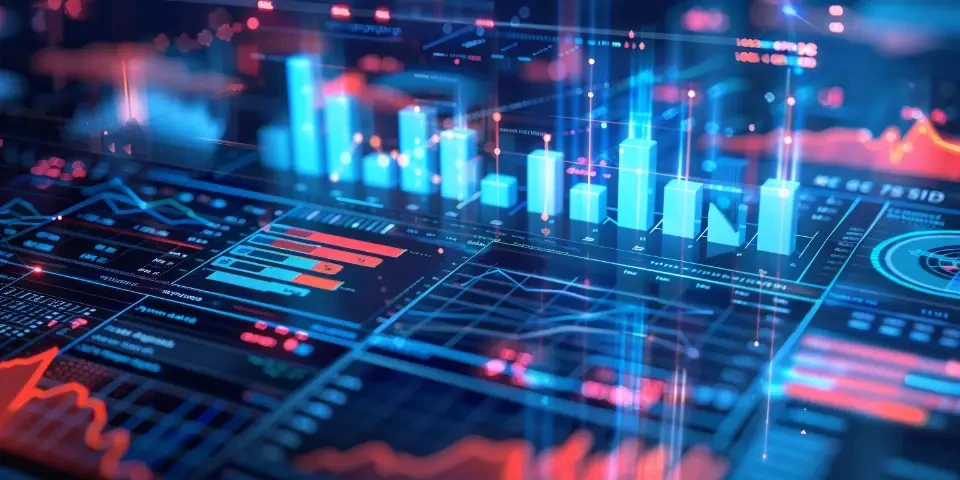The Future of AI How It Will Revolutionize Our Everyday Lives
Artificial Intelligence (AI) has become a buzzword in recent years, and its potential impact on our everyday lives is enormous. From self-driving cars to virtual assistants, AI is already transforming various industries. In this article, we will explore the future of AI and how it will revolutionize our everyday lives in several aspects.
1. Healthcare
In the field of healthcare, AI holds great promise. With its ability to analyze vast amounts of medical data, AI-powered systems can provide faster and more accurate diagnoses. This can lead to early detection of diseases, personalized treatment plans, and improved patient outcomes. Moreover, AI can assist healthcare professionals in surgical procedures, providing real-time guidance and reducing human errors.

2. Transportation
The future of transportation will be heavily influenced by AI. Self-driving cars, enabled by AI algorithms, have the potential to make roads safer and minimize traffic congestion. These autonomous vehicles can communicate with each other, optimizing routes, and minimizing the risk of accidents. Additionally, AI-powered traffic management systems can efficiently control traffic signals, further improving the flow of vehicles.
3. Virtual Assistants
Virtual assistants, such as Amazon's Alexa and Apple's Siri, have already found their way into many households. However, the future of virtual assistants will go beyond basic voice commands. AI advancements will enable virtual assistants to understand context and emotions, enhancing natural language processing capabilities. They will become our trusted companions, helping us with tasks, providing personalized recommendations, and offering companionship.
4. Education
The integration of AI in education has the potential to revolutionize the way we learn. Adaptive learning algorithms can personalize the educational experience, tailoring it to individual students' needs. AI-powered tutoring systems can provide students with instant feedback and personalized guidance. Moreover, AI can analyze vast amounts of educational data to identify patterns and create predictive models, enabling educators to improve teaching methods.
5. Cybersecurity
As the digital world continues to expand, cybersecurity is a growing concern. AI can play a crucial role in identifying and preventing cyber attacks. AI algorithms can detect patterns in network traffic, identify anomalies, and quickly respond to potential threats. Additionally, AI-powered authentication systems can enhance security measures by analyzing user behavior and identifying suspicious activities.
6. Customer Service
AI is set to transform customer service by providing efficient and personalized support. Chatbots powered by AI algorithms can handle customer inquiries round the clock, minimizing wait times and improving customer satisfaction. Natural language processing capabilities enable chatbots to understand and respond to customer queries accurately. AI-powered sentiment analysis can also help companies gauge customer satisfaction levels and improve their services accordingly.
7. Manufacturing
In the manufacturing industry, AI has the potential to optimize production processes and increase efficiency. AI-powered robots can perform repetitive and hazardous tasks with precision and without the need for human intervention. Machine learning algorithms can analyze data from sensors and predict maintenance needs, minimizing downtime. AI can also enable predictive quality control, reducing defects and ensuring consistent product quality.
8. Agriculture
The application of AI in agriculture can revolutionize the way we produce food. AI-powered systems can analyze soil conditions, weather patterns, and plant health data to optimize irrigation, crop selection, and fertilization. The use of drones equipped with AI algorithms can monitor crop conditions and identify areas that require attention. AI can also enable precision farming techniques, minimizing resource wastage and maximizing yields.
9. Entertainment
The entertainment industry will be greatly impacted by AI in the future. AI algorithms can analyze users' preferences and behavior to offer personalized content recommendations. Streaming platforms, such as Netflix, already use AI to suggest movies and TV shows based on previous viewing habits. AI can also be used to enhance virtual reality and augmented reality experiences, creating immersive and interactive entertainment options.
10. Personal Finance
AI-powered financial assistants will transform the way we manage our personal finances. These assistants can analyze income, expenses, and spending patterns to provide personalized financial advice. They can help with budgeting, savings, and investment strategies. AI algorithms can also detect fraudulent activities and provide real-time alerts to protect users from financial scams.
Frequently Asked Questions:
Q: Will AI replace human jobs?
A: While AI may automate certain tasks, it will also create new job opportunities that require human skills, such as creativity and critical thinking. It is more likely to augment human jobs rather than completely replace them.
Q: Is AI ethical?
A: Ethical considerations are crucial in AI development. Guidelines and regulations are being established to ensure AI is used responsibly and without bias. Transparency and accountability are important factors in AI decision-making systems.
Q: Can AI have unintended consequences?
A: Yes, AI systems can have unintended consequences if not properly designed and monitored. It is crucial to consider potential biases, privacy implications, and unintended discriminatory effects during AI development.
Conclusion
The future of AI is bright, and its impact on our everyday lives will be significant. From healthcare to transportation, education to entertainment, AI will revolutionize various aspects of our lives. However, it is important to approach AI development with caution, ensuring ethical considerations and safeguards are in place. Embracing AI technology responsibly will unlock its full potential to benefit society as a whole.
References:
1. Smith, J. (2021). The Future of AI in Healthcare..
2. Johnson, M. (2020). Transforming Education with AI..
3. Whitehouse, J. (2019). AI in Cybersecurity: Threat or Savior?.
Explore your companion in WeMate